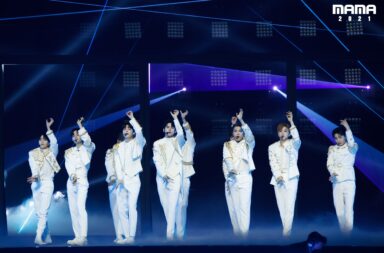 As North Korea steadily ratchets up its bombastic rhetoric and slowly pushes the Korean peninsula towards the brink of what could rapidly turn into a nuclear war, it turns out that South Koreans have far more to fear from their own domestic government than they do from any silly rhetoric that claims that Seoul will be turned into a “sea of fire.” Clearly, newly-inaugurated President Park Geun-hye has it out for the women of her country, as one of her first orders of business was to pass a new “overexposure law” that went into effect at the end of March. The law, designed to prohibit public indecency, punishes violators with a heavy fine of 50,000 KRW (~$48 US) and has caused quite the stir among South Korean politicians and citizens. Because everyone knows that “overexposure” could only refer to one thing, right?
As North Korea steadily ratchets up its bombastic rhetoric and slowly pushes the Korean peninsula towards the brink of what could rapidly turn into a nuclear war, it turns out that South Koreans have far more to fear from their own domestic government than they do from any silly rhetoric that claims that Seoul will be turned into a “sea of fire.” Clearly, newly-inaugurated President Park Geun-hye has it out for the women of her country, as one of her first orders of business was to pass a new “overexposure law” that went into effect at the end of March. The law, designed to prohibit public indecency, punishes violators with a heavy fine of 50,000 KRW (~$48 US) and has caused quite the stir among South Korean politicians and citizens. Because everyone knows that “overexposure” could only refer to one thing, right?
Yes, you’ve got it. South Koreans are now and forever banned from wearing miniskirts. From here on out, please look forward to SNSD and company’s return to more retro concepts — and by “retro,” I of course refer not the style of dress preferred in the 1970s, but in the 1870s. Yeah, bring back the petticoat! Down with feminism!
No, I’m just kidding. Of course South Koreans can still wear miniskirts. Police have confirmed that the law is designed to prevent nudity and other extreme examples of indecent exposure in public. These sorts of laws exist in many, many countries, the United States included. Maybe it will finally curb the outrageous number of (mostly male) individuals who see fit to urinate in public after a night of excessive drinking.
And yet — and yet! — by the time the news made it to Western media outlets (from “journalistic” sources like the UK’s The Daily Mail to fairly reputable news organizations like CNN), headlines read like the hysterical ramblings of someone with the paranoia of Chicken Little — and nearly all of them in some way made reference to the idea that this law means that the ladies of K-pop will have to burn their extensive (and expensive) wardrobe of miniskirts. Seriously, I cannot even tell you how many of these articles I saw. Suddenly, my Facebook was littered with proverbial eye rolls and snorts of derision at how backward-thinking Koreans are. “Really, Korea?” wrote one friend. “This is just really f*cked up,” wrote another.
Mmm, nope. Actually, the f*cked up thing here, if there is one, is that everyone has gone and lost their heads over absolutely nothing. South Korea isn’t banning minskirts, guys — everyone needs to take a massive chill pill.
 What might have fueled such hysteria then? The same thing that usually fuels hysteria — people misinterpreting and/or overreacting to something and then posting their misguided opinions on some social media sharing tool that broadcasts their idiocy to a broad audience that can’t or won’t think for themselves. In this case, the culprits were celebrities like the ever-wise Lee Hyori, who tweeted, “Is this overexposure fine for real? I’m so dead, ” and a few opposition party politicians, most of whom were eager to draw comparisons between President Park and her father, the late military dictator (and South Korea’s most polarizing political figure) Park Chung-hee, who notoriously implemented a strict curfew and dress code during his 19-year reign. Under Park Chung-hee, police officers would walk around with measuring sticks in order to make sure that skirts were an appropriate length (ending no more than 20 centimeters above the knee) and that men’s hair did not exceed a certain point (and if it did, “free” haircuts were promptly received). Obviously, it was an era of great restriction on personal freedom, and South Korea has certainly not seen anything comparable since the democratization movement in the late 1980s. However, that hasn’t stopped the rousing chorus of “Like father, like daughter” as politicians complain that the government should’t be regulating the way citizens dress. Which is a great point — if, you know, that was actually what the government was trying to do.
What might have fueled such hysteria then? The same thing that usually fuels hysteria — people misinterpreting and/or overreacting to something and then posting their misguided opinions on some social media sharing tool that broadcasts their idiocy to a broad audience that can’t or won’t think for themselves. In this case, the culprits were celebrities like the ever-wise Lee Hyori, who tweeted, “Is this overexposure fine for real? I’m so dead, ” and a few opposition party politicians, most of whom were eager to draw comparisons between President Park and her father, the late military dictator (and South Korea’s most polarizing political figure) Park Chung-hee, who notoriously implemented a strict curfew and dress code during his 19-year reign. Under Park Chung-hee, police officers would walk around with measuring sticks in order to make sure that skirts were an appropriate length (ending no more than 20 centimeters above the knee) and that men’s hair did not exceed a certain point (and if it did, “free” haircuts were promptly received). Obviously, it was an era of great restriction on personal freedom, and South Korea has certainly not seen anything comparable since the democratization movement in the late 1980s. However, that hasn’t stopped the rousing chorus of “Like father, like daughter” as politicians complain that the government should’t be regulating the way citizens dress. Which is a great point — if, you know, that was actually what the government was trying to do.
Let’s take this out of South Korea and put it into a different political realm — say, the United States’ ongoing debate over gun regulation. Suppose a politician introduces a bill that would prevent private citizens from owning assault weapons such as semi-automatic firearms (and assault weapons only). Let us assume that the purpose of the bill was simply to limit the potential occurrence of a tragic massacre that takes the lives of dozens of innocent people (and could reasonably involve assault weapons). As is bound to happen, a politician (or multiple politicians) from the opposition party makes a statement arguing that the politician that put forth the bill is attempting to rob Americans off their Second Amendment rights and take away any and all guns — a statement that can reasonably be classified as hyperbolic, given that we know this is not the intent of the bill. Then a well-known celebrity and gun enthusiast (for argument’s sake, let’s just say it’s Justin Bieber or someone of equivalent celebrity status) tweets about how the federal government will never take away his guns (even though he’s technically Canadian).
Now assume that the opposition party’s exaggeration + a celebrity’s thoughtless tweet are used as evidence in a news piece published in another country whose headline reads “America Bans All Guns.” Ta da! This is what we just saw play out with the South Korean overexposure law.
 If there’s a takeaway from all of this, it’s that you really shouldn’t believe everything you read in the news, particularly as it relates to South Korea — and if something sounds too absurd to be true, there’s a good chance that it is. Granted, a general freak out over the overexposure law in South Korea precipitated Western journalists’ coverage of the incident, but if part of your story hinges on social media published by a pop star (and don’t get me wrong, I got love for mah gurl Hyori, but she should in no way be taken as an intelligent source of commentary on legal matters), then something is not right and one’s journalistic integrity (if such a thing exists anymore) should urge one to probe more deeply. The fact that careless reporting makes South Korea look backwards, stupid, and repressive when in fact the law exists for no other purpose than to punish people who streak in public should be cause for concern.
If there’s a takeaway from all of this, it’s that you really shouldn’t believe everything you read in the news, particularly as it relates to South Korea — and if something sounds too absurd to be true, there’s a good chance that it is. Granted, a general freak out over the overexposure law in South Korea precipitated Western journalists’ coverage of the incident, but if part of your story hinges on social media published by a pop star (and don’t get me wrong, I got love for mah gurl Hyori, but she should in no way be taken as an intelligent source of commentary on legal matters), then something is not right and one’s journalistic integrity (if such a thing exists anymore) should urge one to probe more deeply. The fact that careless reporting makes South Korea look backwards, stupid, and repressive when in fact the law exists for no other purpose than to punish people who streak in public should be cause for concern.
Besides, if you really think that roomful of ajosshis (plus President Park) would pass a law preventing their favorite underage celebrities from exposing their unbelievably thin legs in miniskirts and hot pants, then you’ve got another thing coming.
Thoughts, readers? Leave them below!


